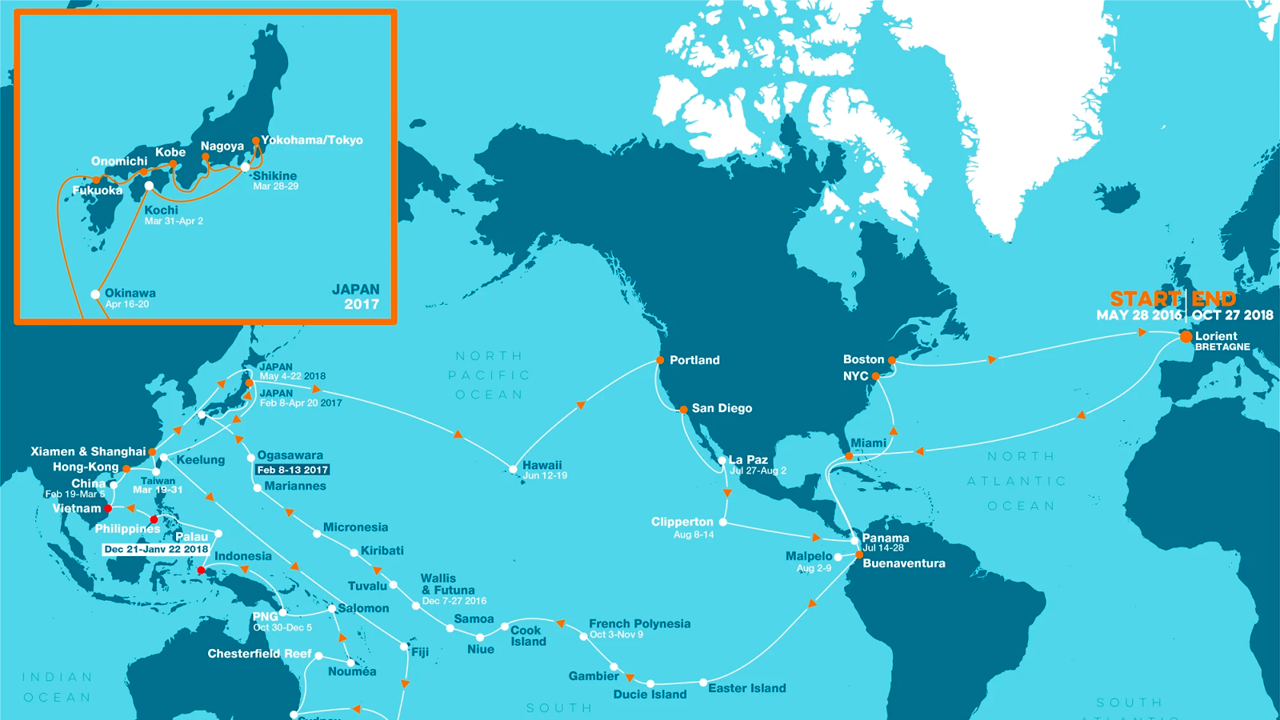First results from large-scale expedition across coral reef ecosystems in the Pacific Ocean
Tara Pacific expedition reveals new insights into the complexity, ecology and evolution of corals and their microbial communities, highlighting their role as keystone species in the most diverse marine ecosystems. Eight manuscripts with contributions from the Sunagawa lab (IMB) report these findings.
Despite covering only 0.16% of the surface area of the ocean, coral reefs host about 35% of known marine species, making it the most biologically diverse marine ecosystem on the planet. These ecosystems rely on complex biological interactions between reef organisms as well as within coral holobionts—corals and their microbiome (including algae, microorganisms and viruses). The Tara Pacific expedition traversed the coral reefs of the Pacific Ocean, covering >100,000 km.

Despite covering only 0.16% of the surface area of the ocean, coral reefs host about 35% of known marine species, making it the most biologically diverse marine ecosystem on the planet. These ecosystems rely on complex biological interactions between reef organisms as well as within coral holobionts—corals and their microbiome (including algae, microorganisms and viruses). The Tara Pacific expedition traversed the coral reefs of the Pacific Ocean, covering >100,000 km. In total, 58,000 samples from 249 sites were collected with the goal of providing a baseline of the ‘omics’ complexity of the coral holobiont and reef ecosystems. The results published in a series of eight publications describe the standardized protocols developed to study coral reef diversity (external page 1–external page 2), characterize the microbial diversity of these ecosystems (external page 3), shed light on the evolution of coral genomes (external page 4–external page 5), and provide insights into interactions between corals and symbiotic bacteria (external page 6), algae (external page 7) and their viruses (external page 8). By processing sequencing data from >5,000 samples, members of the Microbiome Research Lab (IMB) helped identify >500,000 types of microbes across coral reefs, outline functional associations between coral hosts and their bacterial symbionts, and characterize new viral elements in algal genomes. The collection of Tara Pacific publications can be found under this external page link while editorial articles highlighting some of the findings can be found in external page Nature and external page Science.